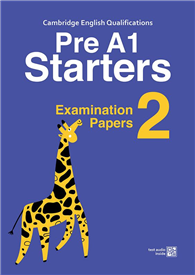What do Rowan Williams, Stanley Hauerwas, Rene Girard, Richard Rohr, Timothy Radcliffe, Monica Furlong, Richard Rohr, Andrew Sullivan, and Mark Jordan have in common beside their Christian faith? Answer: the fact that they have all heaped praise on one or another of James Alison’s books. "Intellectual dynamite and spiritual joy" (Rohr); "wit, clarity, depth and surprises" (Williams); "deeply moving and liberating" (Radcliffe). Perhaps James Keenan has put it most memorably: "Not since C.S. Lewis has an English Christian summoned his readers into such holy conversations." And Andrew Sullivan has spoken for the community most touched by Allison’s work: "a rich resource for gay Catholics trying to reconcile their own deep and profound faith with the hostility of the hierarchy." About half of his new book deals with lesbian and gay issues, particularly in light of the the latest Vatican ukase banning gays from seminaries, and the rest with a variety of tropes central to Christian faith and life: reconciliation, the Eucharist, psychology and evil, worship in a violent world. But whatever the topic Alison turns to he writes with the edgy brilliance of a "break-in" artist who is always full of surprises.
| FindBook |
有 1 項符合
Undergoing God: Dispatches from the Scene of a Break-In的圖書 |
 |
Undergoing God: Dispatches from the Scene of a Break-In 作者:Alison 出版社:Bloomsbury Publishing PLC 出版日期:2006-11-27 語言:英文 規格:平裝 / 246頁 / 21.6 x 13.7 x 2 cm / 普通級 |
| 圖書館借閱 |
| 國家圖書館 | 全國圖書書目資訊網 | 國立公共資訊圖書館 | 電子書服務平台 | MetaCat 跨館整合查詢 |
| 臺北市立圖書館 | 新北市立圖書館 | 基隆市公共圖書館 | 桃園市立圖書館 | 新竹縣公共圖書館 |
| 苗栗縣立圖書館 | 臺中市立圖書館 | 彰化縣公共圖書館 | 南投縣文化局 | 雲林縣公共圖書館 |
| 嘉義縣圖書館 | 臺南市立圖書館 | 高雄市立圖書館 | 屏東縣公共圖書館 | 宜蘭縣公共圖書館 |
| 花蓮縣文化局 | 臺東縣文化處 |
|
|
圖書介紹 - 資料來源:博客來 評分:
圖書名稱:Undergoing God: Dispatches from the Scene of a Break-In
內容簡介
作者簡介
James Alison is a Catholic theologian, priest, and author. Having lived with the Dominican Order between 1981 and 1995, he currently travels the world as an itinerant preacher, lecturer, and retreat giver. He studied at Oxford University and the Jesuit Theology Faculty in Belo Horizonte, Brazil. He has lived and worked in Mexico, Brazil, Bolivia, Chile, and the United States as well as his native England. He is the author of Knowing Jesus, Raising Abel: The Recovery of the Eschatological Imagination, The Joy of Being Wrong, Faith Beyond Resentment, On Being Liked and Undergoing God.
Violin for Beginners: The Most Comprehensive Guide to Reading and Playing Amazing Songs!
Globalized wisdom of the XXI century
Globalized wisdom of the XXI century
Fantastic Religious Experiences
The Gospel of John: First Issue of a Seven-Book Series
The Translation of Holy Quran (聖クルアーン) Japanese Languange Edition Ultimate
Mother of Invention: Mother Teresa and the Franciscan Servants of Jesus
Demystifying God: Redefining Black Theology in the Age of iGod Shahidi Collection Vol 2
Is EVOLUTION True?: Why Darwin’s Rejection of Intelligent Design no longer makes sense. Why Life really is a miracle in the true sense
Systematic Theology (Volume 3)
Globalized wisdom of the XXI century
Globalized wisdom of the XXI century
Fantastic Religious Experiences
The Gospel of John: First Issue of a Seven-Book Series
The Translation of Holy Quran (聖クルアーン) Japanese Languange Edition Ultimate
Mother of Invention: Mother Teresa and the Franciscan Servants of Jesus
Demystifying God: Redefining Black Theology in the Age of iGod Shahidi Collection Vol 2
Is EVOLUTION True?: Why Darwin’s Rejection of Intelligent Design no longer makes sense. Why Life really is a miracle in the true sense
Systematic Theology (Volume 3)
|











